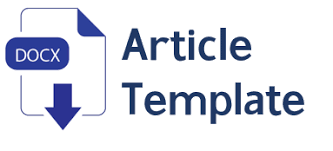Pengaruh Pembiayaan Syariah, Kredit Konvensional Dan Pengeluaran Per Kapita Terhadap Pertumbuhan Industri Mikro Dan Kecil Di Sumatera Bagian Selatan
DOI:
https://doi.org/10.59086/jam.v4i1.641Keywords:
Pembiayaan Syariah, Kredit Bank Konvensional, Pengeluaran Per Kapita, Industri Mikro dan Kecil, Pertumbuhan UsahaAbstract
Micro and Small Enterprises (MSEs) play a vital role in the economy of Southern Sumatra, serving as key drivers of local economic growth and job creation. However, their development remains constrained by limited access to financing and the influence of household purchasing power. This study examines the effects of financing from Islamic Commercial Banks and Islamic Business Units, conventional bank credit, and the moderating role of per capita expenditure on the growth of MSEs during the 2019–2023 period. Secondary data were obtained from the Financial Services Authority (OJK) and Statistics Indonesia (BPS) and analyzed using a panel data model with a moderation approach. The results reveal that both Islamic financing and conventional credit significantly influence MSE growth. While per capita expenditure does not have a direct effect, it serves as a moderating variable: its interaction with Islamic financing strengthens MSE growth, whereas its interaction with conventional credit weakens the relationship. These findings highlight that access to bank financing is essential for supporting MSE development, but its effectiveness is highly dependent on consumption patterns and household purchasing power.
Downloads
References
Afkar, T., Anshori, A., & Ridwan, M. (2020). Profit and loss sharing financing and its impact on micro and small enterprises. Jurnal Ekonomi Syariah, 12(2), 115–127.
Ali, A., Hashmi, S. H., & Hassan, A. (2014). The role of small and medium enterprises and poverty in Pakistan: An empirical analysis. Theoretical and Applied Economics, 21(1), 67–80.
Anggraini, R., & Haryadi, H. (2020). Analisis peran kredit perbankan dalam pendanaan usaha mikro, kecil, dan menengah (UMKM) serta hubungannya dengan pertumbuhan ekonomi di Provinsi Jambi. Jurnal Perspektif Ekonomi Darussalam, 6(2), 151–162.
Badan Pusat Statistik. (2023). Statistik usaha mikro, kecil, dan menengah Indonesia. BPS.
Butar Butar, R., Manurung, A. H., & Sihombing, P. (2023). Mudharabah financing and the growth of small enterprises in Indonesia. Jurnal Keuangan dan Perbankan Syariah, 9(1), 45–56.
Croitoru, A. (2012). Schumpeter, innovation and growth: Long-term dynamics reconsidered. Journal of Evolutionary Economics, 22(5), 963–989.
Dwi Puspita, A., & Agustina, T. (2019). Engel’s law and consumption patterns in developing countries. International Journal of Social Economics, 46(4), 517–529.
Faizin, A., & Daulay, H. (2023). Keynesian consumption theory and its relevance to modern economic behavior. Jurnal Ilmu Ekonomi, 14(1), 101–112.
Faisol, A. (2017). Islamic bank financing and its impact on small medium enterprise’s performance. Jurnal Keuangan Syariah, 5(3), 211–220.
Ghozali, I. (2018). Aplikasi analisis multivariate dengan program IBM SPSS 25. Semarang: Badan Penerbit Universitas Diponegoro.
Judijanto, B., & Mu’min, M. (2024). Pembiayaan syariah dan pertumbuhan UMKM di Indonesia. Jurnal Ekonomi Syariah dan Bisnis, 7(1), 23–36.
Levine, R., Loayza, N., & Beck, T. (2004). Financial intermediation and growth: Causality and causes. Journal of Monetary Economics, 46(1), 31–77.
Martia, S., Putra, Y., & Rahman, R. (2022). Do monetary instruments affect conventional bank loans to MSMEs? Jurnal Ekonomi Moneter Indonesia, 10(2), 121–138.
Mustamu, H., Prakoso, W., & Lestari, M. (2021). Permanent income hypothesis and its implications for consumption in Indonesia. Jurnal Ekonomi Pembangunan, 22(2), 88–97.
Naeruz, M., Wulandari, F., & Karim, A. (2020). The analysis on the development of Islamic banks on the growth of UMKM through monetary policy in Indonesia. Journal of Islamic Economics, 12(2), 145–162.
Pratama, R., & Innayah, I. (2020). Growth, competition, and efficiency of Islamic microfinance institutions. Jurnal Keuangan Islam, 8(1), 87–102.
Putri Wardyana, P., & Prabowo, S. (2022). Pengeluaran per kapita dan pembangunan berkelanjutan di Indonesia. Jurnal Pembangunan Daerah, 6(1), 99–113.
Salsabila, R. (2024). Analisis dampak penyaluran pembiayaan kredit usaha rakyat (KUR) pada pendapatan UMKM (Studi kasus: Nasabah BSI KCP Bukittinggi Pasar Aur). Jurnal Ekonomi Syariah dan UMKM, 5(2), 144–158.
Septiani, I., Hidayat, T., & Rahmawati, S. (2024). Tantangan UMKM dalam era transformasi digital. Jurnal Ekonomi Kreatif, 12(1), 33–49.
Sihite, P. (2022). Analisis pengaruh pendapatan perkapita, jumlah konsumsi dan pertumbuhan ekonomi di Kabupaten/Kota Provinsi Kalimantan Tengah. Jurnal Ilmiah Ekonomi Pembangunan, 23(2), 211–226.
Suryani, L., & Fathoni, M. (2020). Profit and loss sharing in Islamic banking practices in Indonesia. Jurnal Perbankan Syariah, 9(1), 55–70.
Tambunan, T. (2016). Usaha mikro, kecil, dan menengah di Indonesia: Isu-isu penting. Jakarta: LP3ES.
Yolanda, R. (2024). Karakteristik usaha mikro dan kecil di Indonesia. Jurnal UMKM Nusantara, 11(1), 12–27.
Yuliana, S., Haris, A., & Antonio, M. S. (2018). Islamic financing characteristics and its role in MSME growth. Journal of Islamic Banking and Finance, 6(3), 201–214.
Zahra Firdausya, Z., Putri, H., & Andini, D. (2023). Legal and financial barriers for small enterprises in Indonesia. Jurnal Hukum Ekonomi, 8(2), 90–108.
Downloads
Published
How to Cite
Issue
Section
License
Copyright (c) 2025 Dolly Tanzil, Muhammad Bahrul Ulum

This work is licensed under a Creative Commons Attribution 4.0 International License.
This is an open-access journal. All works are published under the Creative Commons license CC-BY which means that all content is freely available at no charge to the user or his/her Institution. Users are allowed to read, download, copy, write, improve, and create derivative creation even for other lawful purposes, this license permits anyone to, as long as they cite and license the derivative creation under similar terms

This work is licensed under a Creative Commons Attribution 4.0 International License.


















